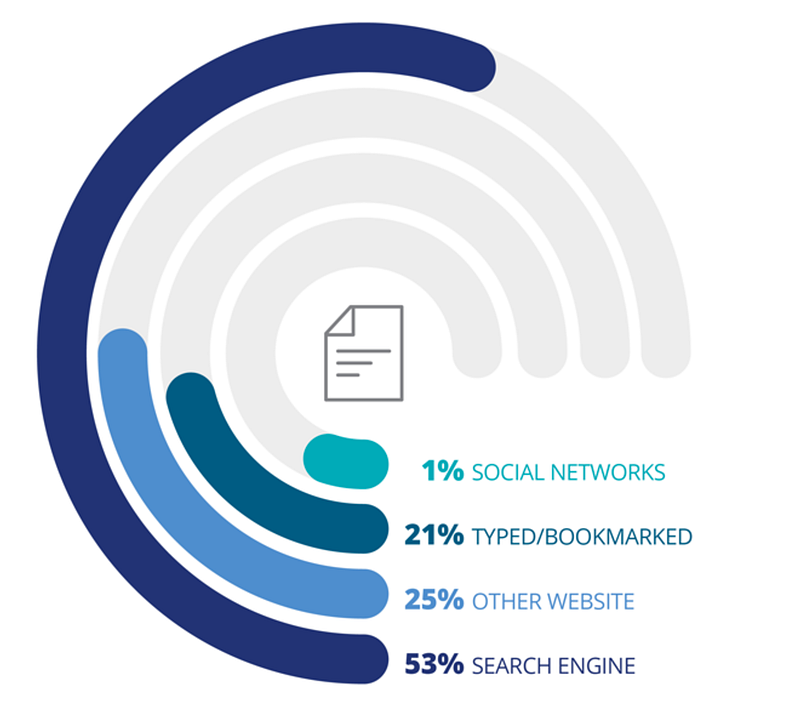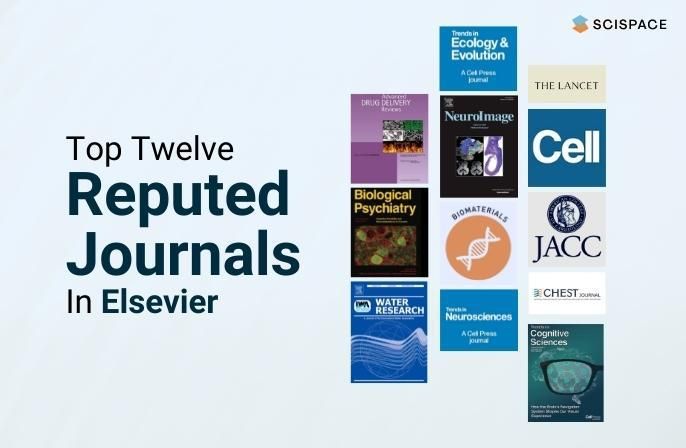A workable strategy to increase readership for your research
Citation count. If you are a published researcher, you know the importance of this number. The number of times an academic paper is cited has become a major measure of its research impact. Research consumption has moved online. Many researchers today have an online workflow from discovery to publishing. Easy discoverability online has become a necessity to increase the citation count for your research. A research article that is easily discovered online can affect the readership, utilization, and citation count of your research.

At SciSpace (Formerly Typeset), we talk to hundreds of researchers every day in our journey to build the easiest and simplest research writing platform. One of the challenges researchers face today is how to increase the visibility of their published research online.
Based on our conversations with published researchers, we have aggregated the below steps you can immediately take to increase citation count of your research paper:
1. Identifying Keywords: Based on the topic of your research, identify 2–5 keywords you can use. You have to incorporate the keywords in all parts of your content such as title, abstract, headings, sub-headings, keywords section, graphics, tables, figures, file name, and description tags. More than SEO, keywords are also used by abstracting and indexing services to tag research content. Selecting the right keywords can increase citation count by improving article discoverability.
2. Source for Keywords: Start with keywords and phrases that a typical user will search for in your domain. You can also use tools to help you identify the right keywords for your content, such as
a. Google Trends — Gives you relative rankings of keywords and phrases based on popularity.
b. Google Adwords — Gives you keywords that advertisers bid for. This gives you an indicator of what keywords generate more searches.
If you still are not sure what keywords to use, check out the popular papers in your area of research, for reference.
3. Keywords Optimization: One thing you have to be wary about is cramming your content with keywords. You need to strike a balance between your content and its searchability online. Using too many keywords, also known as keyword stuffing, might get your article “un-indexed”, making it hard to find it online.
Also, using the most popular keyword may not always be best for your article. A lot of articles out there might use the same popular keyword, thereby reducing the impact. A less popular but more appropriate and relevant keyword might get you more search hits and views.
4. Incorporating keywords in your content :
a. Title — Keep your title short and include 1–2 keywords within 65 characters of your title. Make the title descriptive. You must incorporate a keyword related to your topic of research in the title.
b. Abstract — The first two sentences of your abstract is what is usually displayed in search engine results. So make sure that the right keywords are included in the first two sentences. Use the keywords 3–6 times in the abstract but make sure you clearly explain the key points of your research while doing so.
c. Headings — Search engines use headings to identify the overall structure and content of your article. Incorporating your keywords and phrases in these headings will help your article’s searchability.
5. Authority marketing on social media: The volume and quality of inbound links are big factors in Search Engine Optimization (SEO).
You can increase the number of links by sharing/including your article on
a. LinkedIn
b. Facebook
c. Twitter
d. Websites that you contribute to
e. Your institution’s repository
f. Your Mendeley/ResearchGate/Academia.edu profile
g. Your website
h. Your academic institution’s website
i. Facebook Groups
j. Quora
More than sharing your article on these media, you can also reach out to influencers in your domain. Ask them to read and give feedback about your article. A tweet or a Facebook post mention by an influencer can generate a good amount of traffic to your article.
6. Actively promote your article: Write a blog post on your research with a link to the library where it’s hosted. A good blog post talking about your research can increase citation count. It can also help the wider audience understand your research better thereby increasing chances of usage.
You can also write a guest post about your research on a blog with a bigger audience. This will contribute to citations as well as your article SEO. It also helps in spreading your work to areas and audiences your research can create an impact on.
7. Self-citation: Cite your own or your co-authors' past papers as appropriate. This is important since citations of your past work factors into how search engines rank your current and future work.
According to a major publisher, more than half of the traffic to its online library comes from Google, Google Scholar and other search engines. A reason why publishers and journals today are focusing on SEO strategies to help improve citations of their articles. Readership and citations affect the impact factor of the journal. And as an author, you can and should help improve the discoverability at the article level.
As a team, building tools and technology to solve major problems researchers face in communicating your knowledge, we at SciSpace understand why this is important. That’s why we are building a feature that will auto-suggest SEO keywords based on your target journal and domain.
Before you go, we recommend you check out SciSpace discover. Using this tool, you can find millions of peer-reviewed articles, and sort them by publication date, number of citations received, and relevance.

The best-in-class solution takes care of everything from literature search and discovery, profile management, research writing and formatting, and so much more.
You can learn more about what we do and how we help you in your research writing here.
Further reading :









